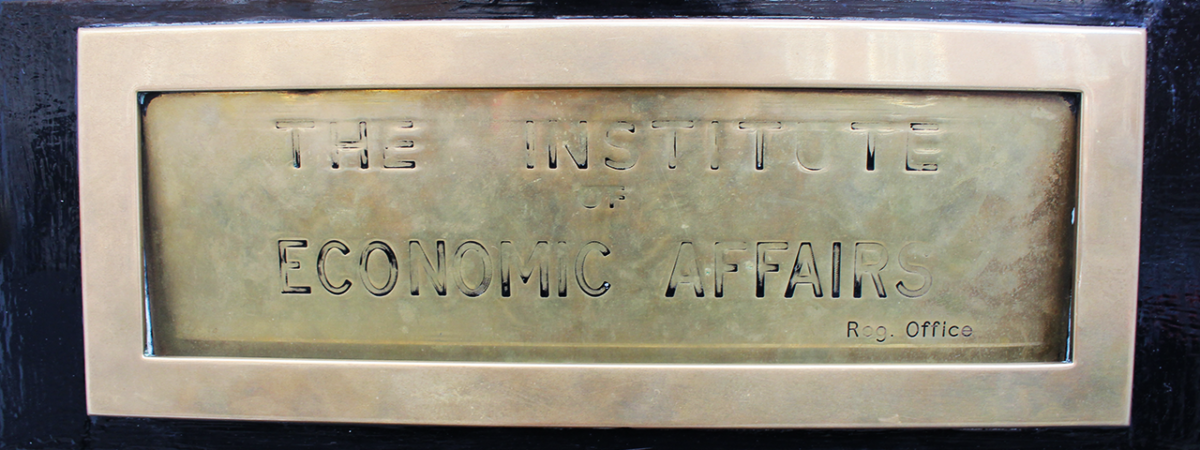The “Green Jobs” fallacy
SUGGESTED



One flaw in any plan to use low carbon industries to ‘create jobs’, is that many parts of it tend to be capital intensive and people light. This is evident in Labour’s own modelling. They pledge to spend £12.8 billion on a home insulation programme they say will create 160,000 jobs. This works out at a cool £80,000 of subsidy per job created.
State-funded job creation, moreover, can carry huge costs (and opportunity costs). ‘Public money’ does not materialise from thin air, it inevitably involves diverting resources from elsewhere. If funded by government borrowing, it risks ‘crowding out’ of private investment. If not, increased taxation on productive industries and jobs – which in turn leaves them with less money to employ people.
We can’t apply an analysis to Labour’s hypothetical proposal at this stage. But we can also look at related studies such as the “Study of the effects on employment of public aid to renewable energy sources” from Universidad Rey Juan Carlos in 2009. This demonstrated that the Spanish solar subsidies model, which many other governments at the time attempted to emulate with very similar language and ambitions to Labour’s current proposals “destroyed 2.2 jobs for every ‘green job’ created”.
But even if this were not the case, centrally planning the economy in this way would remain a poor mechanism for tackling climate change. The best solutions to global warming will involve technologies that do not yet exist, tested and made affordable through scale-up according to demand – not government targets – and then sold around the world. The most efficient way for the state to assist this process is not to “pick winners”, by throwing money at technologies we know are ineffective, or can never be competitive.
Already, state subsidies have created perverse incentives in the provision of building insulation technologies. There have been several well-intended schemes to improve the thermal efficiency of buildings – underpinned by numerous behind-the-scenes battles between providers to ensure those schemes favour their specific technologies over rival products. Such lobbying is a classic consequence of social subsidy programmes, which remain an inefficient model for deciding what works or encouraging innovation. Better to let customers choose.
Forcing the issue through bodies principally focused on hitting arbitrary environmental targets can have harmful unintended consequences. Ecological targets, for example, have been used as an excuse for rushed projects that ended up putting entirely inappropriate flammable panelling on tower blocks. That should never have happened. As a less extreme case, some experts believe we may even be over-insulating our buildings, creating sealed ‘box-houses’ that can’t breathe. If that then requires energy-guzzling air conditioning to address overheating in the summer, it is entirely counterproductive.
It’s not hard to see why this might occur. As any public choice economist will attest, politicians are inevitably influenced by the best-funded, best-mobilised voices. In the case of green industry this means big incumbents, and their lobby groups, who have made their money largely from government. The perverse incentives associated with the allocation of state funds create a strong risk of a ‘low carbon industrial complex’, where consumers lose out to producer interests.
The Hinkley Point C nuclear power plant is a classic in this genre. The project, if built and operational, will cost Joe Public £81bn over 35 years, largely due to effective lobbying of the Government to offset EDF and their investors risks with a fantastic rate of return of some 10-15% a year. Compare this with Government borrowing at 0.5%. And, given the problematic EPR design used to for Hinkley’s reactor, the plant lacks even the hope it might stimulate a global export industry. Nobody else wants it, and it hasn’t even been built yet.
Or take Carbon Capture and Storage, a form of technology which will never be financially viable in the UK. We simply don’t have enough heavy industry or coal-fired power stations left to use it, and we’re one of the most expensive places in the world to build infrastructure. The situation is the exact reverse in China, where they have the comparative advantage to test and build this technology.
A much smarter policy than our ever-failing £1-2bn demonstration plan for carbon capture, then, would be sending British brains to China to help with their efforts. Let their technicians scale it and sell it back to us if it can ever work. Fundamentally, the planet doesn’t care where green innovation happens, so long as it happens.
The best possible tax intervention on climate change would be a simple global carbon tax, creating a single global carbon price to tackle a single global externality. Our present system is the worst of all possible worlds; a range of national and regional carbon taxes, targets and regulations that distort outcomes and make the UK uncompetitive.
It creates a vicious cycle of poor investments; growth-stunting taxes are added to energy bills in order to fund ineffective schemes, which then require further ‘bad taxes’ to keep them afloat. This in turn inflates UK energy bills, which puts up the cost of doing business domestically, which in turn leads to further displacement of jobs abroad. Particularly, and paradoxically, for example in the manufacturing supply chains of green industries. Wind turbines are not woven from hemp, they’re built principally of steel, concrete and plastics, all based on energy intensive industry.
On climate change, there is a happy middle ground between doing nothing and doing too much in the wrong place. Unfortunately, the direction of UK energy policy is very much poised towards the latter. We don’t need more green job destruction schemes.
1 thought on “The “Green Jobs” fallacy”
Comments are closed.





The Ed Miliband 2008 Climate Change Act decimated our heavy industries. Chemicals, ceramics, steel and particularly aluminium were all impacted. Exporting factories and jobs to places like the far east, for a net increase in CO2 as they had zero interest in mitigating it.
This was tantamount to a criminal act and inspired by the EU.
Carbon capture went out if the window, along with other technologies at its introduction.